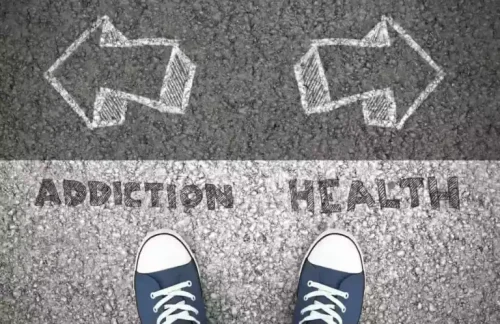
Women for Sobriety focuses on the needs of women with any type of substance use problem. Loved ones who are concerned about a person’s drug or alcohol use may consider an intervention. Ongoing support and follow-up care are important in the recovery process to prevent relapse. This stage of change can present new challenges as a person navigates life after treatment or without the regular support they may have had previously.
- The point is that there is value placed on these new sources of activity, and that value confers new rewards that can compete with and overtake the desire to return to substance use, supporting sustained remission.
- The severity of use also plays a role, so knowing what to expect—and when to seek emergency help—is important.
- These brain adaptations often lead to the person becoming less and less able to derive pleasure from other things they once enjoyed, like food, sex, or social activities.
- A full-time facility provides a supportive environment to help people recover without distractions or temptations.
Center for Substance Abuse Treatment (CSAT)
They are not occasion for blame or despair but for encouraging resumption of recovery. Families can develop awareness of a loved one’s emotional, environmental, and social triggers of substance use and manage those. Studies show that families that participate in treatment programs increase the likelihood of a loved one staying in treatment and maintaining gains. Research and clinical experience have identified a number of factors that promote recovery.
Stage 6: Termination

Empowerment is another necessary mechanism of change; in psychological parlance it’s known as self-efficacy. It stems from the ability to consistently cope with the demands of recovery and a new life. The example set by others who have successfully traversed the recovery terrain can instill hope and optimism, another active recovery ingredient. Actively seeking input from peers on the path to recovery, a clinician, or both can be invaluable early on. Many, though not all, self-help support groups use the 12-step model first developed by Alcoholics Anonymous.
- Third, find a common point of agreement as a grit of sand to make the pearl.
- You’ll also find targeted advice on specific types of addiction, as well as information about coping with a loved one’s addiction.
- Here’s what Oregon is discovering about overcoming mistrust between various stakeholders.
Hot weather hikes: Staying safe when temperatures spike

2 in 3 adults who ever had a mental health problem considered themselves to be recovering or in recovery. Finding the right treatment option can be the key to a successful recovery journey. Employment is virtually essential for having a stable drug addiction recovery and meaningful life. But a history of addiction can be an impediment to getting a job. A lack of positive references and having a criminal record typically pose challenges. Too, there may be long gaps in a resume that are hard to explain away.

Other NIDA Sites
- By Michelle PugleMichelle Pugle, MA is a freelance writer and reporter focusing on mental health and chronic conditions.
- Therefore, education and outreach are key in helping people understand the possible risks of drug use.
- Because addiction can affect so many aspects of a person’s life, treatment should address the needs of the whole person to be successful.
- The journey to remission can be bumpy, and it can take a long time.
- That is because the brain is plastic and changes in response to experience—the capacity that underlies all learning.